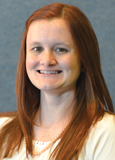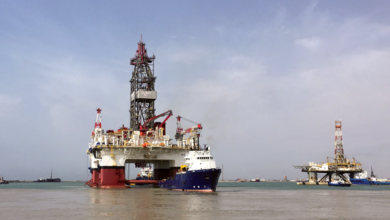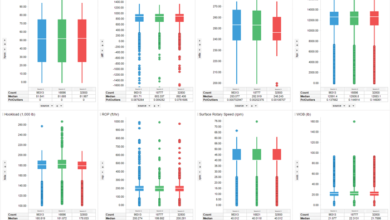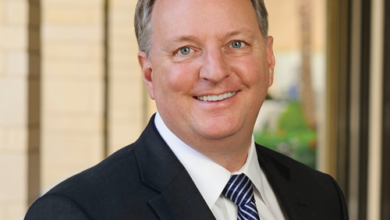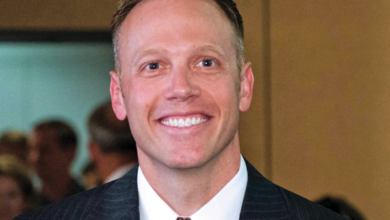Perspectives: Roy Mills, Noble Drilling: Training now ensures drilling contractors will have skilled personnel ready when the next upturn comes
By Kelli Ainsworth, Associate Editor

For Roy Mills, Subsea Systems Manager for Noble Drilling, offshore drilling is a family business. He grew up in Columbia, a small town outside of Monroe in northwest Louisiana. His father, like many other people in Columbia, built his 40-year career in offshore drilling. Three of his uncles were also in the drilling business. From an early age, Mr Mills knew he would follow in their footsteps. In 1991, on the day he turned 18, he started his first job as a roustabout on the Zapata Concord, a moored semisubmersible, in the Gulf of Mexico.
Due to the difficult state of the industry at the time, competition for jobs was fierce. “You had to work very hard to keep the position you had because there were hundreds of people wanting to take your job away,” Mr Mills recalled of his first years with Zapata Drilling. It was also during this time that he learned the value of teamwork, respect, honesty and integrity. “If you treat people the way you would like to be treated, you’re going to get a better product,” he said. “If you can work with that mentality, you’re going to reduce your downtime, be more efficient at what you do and do it more safely.”
It was with this attitude and approach that Mr Mills spent his first five years in the industry with Zapata, going from roustabout to derrick hand to assistant driller and finally to crane operator.
By 1997, Mr Mills had taken a subsea trainee position with Transocean, where he was eventually promoted to Senior Subsea Supervisor. For the next decade, he would oversee subsea operations on several vessels – the Transocean Rather, Transocean Richardson, Discoverer Seven Seas and the Transocean Amirante. He also spent several months supporting the Subsea department on the Transocean Enterprise fifth-generation DP drillship. “There are a lot of jobs out there where the challenge deteriorates over time, but in subsea it has yet to do that,” Mr Mills said.
In 2008 he joined Noble, initially as a subsea superintendent, providing support for eight rigs in the Gulf of Mexico. Key responsibilities included ensuring that all necessary equipment was onboard the rigs, overseeing equipment repairs and working to reduce subsea equipment-related downtime. His scope of work later expanded to the entire Western Hemisphere.
In this office-based position, Mr Mills said, he learned the importance of documentation when it comes to reducing subsea-related downtime. Too often, an event or problem occurs and there’s no record of how the problem was addressed. “You have to document the good, bad, wrong and different, and you have to share it with everyone within the fleet. That’s the only way to get better at what we do,” he said. Documentation also helps preserve knowledge and expertise when industry veterans retire, he added.
At Noble, knowledge sharing is being promoted through the Field Support Team (FST) program, which facilitates the sharing of expertise between experienced and newer employees. The program, developed in 2013, places one experienced team leader with three to four subsea trainees. Under the supervision of the team leader, the trainees undergo both classroom and hands-on training.
Noble currently has 10 trainees in the program. “Those will be the guys that are going to help us get the rigs reactivated,” Mr Mills said. “When the market recovers and we start rigs back up, the training we’re doing now will give us a supply of subsea personnel who are as well-trained as possible.”
Programs like these are important, especially when the offshore market gets back on track. Competition will be intense for subsea personnel who have a decade-plus of experience, and many may be forced to hire workers with little to no subsea experience. “When we start hiring people back, it’s going to be first come, first served. Whoever calls first is going to get the people with 15 and 20 years experience who had to be laid off.”
Since taking the role of Subsea Systems Manager in 2015, Mr Mills has been responsible for developing policies, procedures and processes for Noble’s subsea operations. He also maintains the company’s well control manuals and builds and audits Noble’s subsea standards to ensure safe operations with minimal downtime.
In January 2017, he became Chairman of the IADC BOP Controls Subcommittee, which falls under the Advanced Rig Technology Committee. In this role, Mr Mills said he’s been focused on facilitating collaboration to push higher levels of standardization. There is enormous benefit to having company and industry standards, he believes, but these standards must be driven and developed by the industry and regulators together.
The BOP Controls Subcommittee is developing a guideline document for standardized qualification testing of SPM valves and shuttle valves for control systems. While there are existing standards for the manufacture of these valves, they don’t clearly set forth how the valves should be qualified, set up or tested, Mr Mills said.
Having a clear set of guidelines for testing and assuring these valves will allow companies to know exactly what they’re getting when they order a valve. They will know to what parameters the valve has been tested, and there won’t be any unanswered questions about its qualifications or performance. The committee aims to have the document complete before year-end 2017. DC

